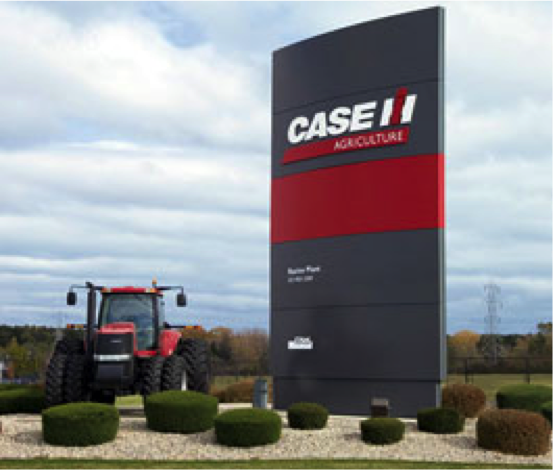World Class Manufacturing
 WCM seeks to eliminate all types of waste including other losses and injuries, defects, breakdowns, inventories, and punctual delivery of parts by suppliers to plants.
WCM seeks to eliminate all types of waste including other losses and injuries, defects, breakdowns, inventories, and punctual delivery of parts by suppliers to plants.
Continuous improvement actions are driven by the cost deployment pillar of WCM that precisely identifies all plant wastes and losses (KPI).
Cutting across all company boundaries and applied to all departments, embracing numerous areas (termed pillars), Case New Holland (CNH) set targets in the 2009-2014 Energy Action Plan; to monitor energy performance, identify solutions to energy-related challenges, and drive performance improvement.
“This led to the identification and implementation of 149 improvement projects, in both technical and management spheres, while increasing individuals’ awareness and level of engagement according to CNH staff. Managing greenhouse gas emissions and optimizing energy consumption are key activities for CNH Industrial to ensure continuous improvement of its performance and of the local environment in which it operates.”
ISO 50001
Veritatis Advisors under contract to UL, led the system verifications at the Racine, WI plant. These were developed and implemented by CNH Industrial, supported by Schneider Electric, aiming to reduce the energy impact of processes and the risks associated rising energy costs. In 2013, CNH Industrial, continued to pursue the certification of its manufacturing processes according to the ISO 50001:2011 standard.
What Veritatis did:
- Certification Scheme
- Training for Client and ESCO Service Partner
- M & V Strategy
- Baseline Intensity
- GHG
The main advantage of the ISO 50001 certification is that it offers a systematic approach in the continuous improvement of energy performance; in other words, a more efficient and rational use of energy, which translates into economic benefits and fewer greenhouse gas emissions.
CNH Industrial’s energy management system was rolled out to 34 plants, which represent about 90% of energy consumption, achieving the certification of one plant more than the targets estimated for 2013.
